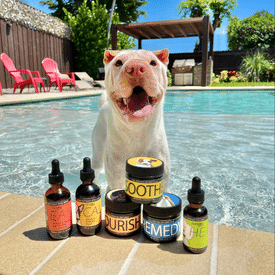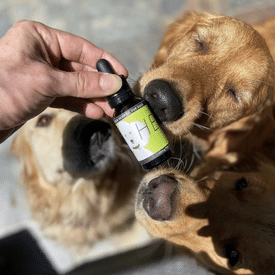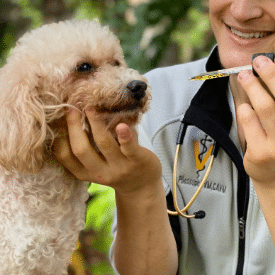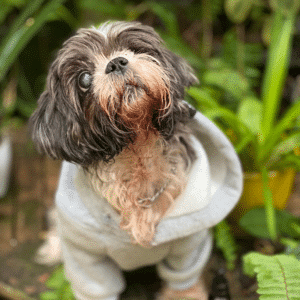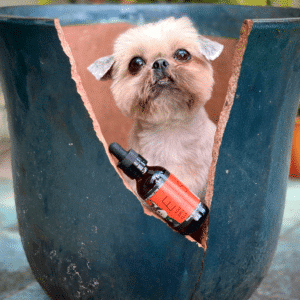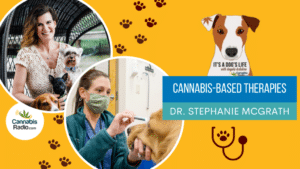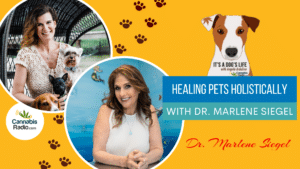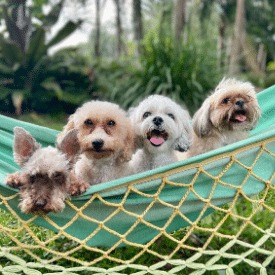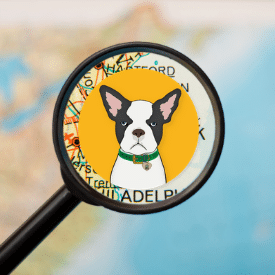10 Things to Know Before Buying CBD for Your Pets

The U.S. passed the Farm Bill in 2018, which means that hemp-derived CBD is now legal and the CBD industry is booming. But with no regulation, it can be difficult to know what you are getting and to know where to start if you are looking to buy CBD especially for your pets.
Considering the incredible benefits CBD can have on your pets life, this is incredibly important. In the last few years of using CBD on the animals in my rescue farm, Fire Flake Farm, I’ve seen animals who could barely walk start to run like puppies. I’ve seen seizures stop, all levels of anxiety calm down, extreme pain gone and so much more. This all-natural medicine has the potential to improve the quality of life of so many animals and I am committed to always have the animal’s needs in mind – FIRST.
So, before you start shopping, you should understand a few basics about hemp CBD for pets.
CBD Regulations
Unfortunately, the CBD industry is largely self-regulating and has no real oversight. By this, I mean there is no one – including the FDA – checking for accuracy of labeling or safety of the hemp CBD products sold in the United States. In some cases, products have been found to contain no CBD at all, or even harmful contaminants. The only way to know that the product you are purchasing is safe, and contains the right amount of cannabinoids like CBD and THC, is by looking at the product’s Certificate of Analysis (COA), which should be from a third party lab.
In a study done by the Department of Clinical Sciences, Cornell University College of Veterinary Medicine, researchers analyzed 29 pet CBD products that were labeled “Full Spectrum,” (meaning it has .3% THC or less) to determine if what they claim on their labels was in fact found in the product. Only 10 of the 29 products were within 10% of the total cannabinoid concentrations of their label claim and four of them were contaminated with heavy metals. Only 18 of the 29 were appropriately labeled.
This is why being informed and doing your research is so important. There are several things to look for when finding a safe and effective CBD product for your pet, and we’ve compiled a CBD Buyer’s Checklist to help you and your pet.
CBD Buyer’s Guide for pet owners
For starters, hemp-derived CBD comes in many forms. You can use a tincture, which is ingested orally or absorbed through the gums, a salve, which is used topically on the skin, or you can find a variety of CBD enriched food products. CBD from the hemp plant contains less than 0.3 percent THC and does not create the psychoactive effects associated with feeling “high”. There are a few other things you need to know before to help you buy the right CBD for your pet.
- Full Spectrum CBD: Look for full spectrum hemp CBD oil, and avoid CBD isolates or broad-spectrum products. Full spectrum means that you are getting the most cannabinoids possible and that those cannabinoids work together (also called the entourage effect) to achieve maximum benefits. CBD isolates or broad-spectrum products have removed cannabinoids, often to make them have little to no THC, which alters the overall effect of the plant as a whole. You want to have that small 0.3 percent THC in the product because it helps boost the other cannabinoids. If the label says “Pure CBD” or “No THC”, you should avoid it.
- USA- Based: Look for brands that are grown and manufactured in the U.S. If the company uses an industrial hemp oil from overseas, there is no telling what you are actually getting in the product.
- Extraction: Use CBD that was made using CO2 extraction methods. This means that the plant was cold-pressed to extract the oil rather than using chemical solvents, like butane (lighter fluid!) or alcohol.
- From the Flower: CBD should be extracted from the flowers. CBD can be extracted from the hemp stalks and hemp seed oil can be extracted from the seeds, but the most potent and effective part of the plant is the flower. The stalks often contain very little CBD.
- Non-Toxic: While becoming USDA organic is often not an option for hemp growers, look for CBD companies who do not use pesticides, herbicides, or any chemicals on their hemp plants.
- Third Party Testing: Make sure the company provides full panel third-party lab testing. This is how you can hold CBD makers’ feet to the fire and can make sure that the purity and potency are what the company claims.
- Correct Labeling: Read the label completely before making your purchase. Some CBD companies, especially in the pet industry, have misleading labels. For example, they will claim to have 1700 mg or higher in their products. However, it is important that the label says the number of mg of CBD or full spectrum CBD, because in many cases, that large number (like 1700 mg) is actually just the amount of mg of hemp oil or hemp seed oil, which does not actually contain active CBD. That means that you can have a product that claims to have 1700 mg of hemp oil, but only 150 mg of active CBD, which will be far less effective than a product with 1100 mg of active full spectrum hemp CBD.
- Knowledge and Reputation: Look for CBD companies who concentrate on holistic pet health and who try to educate consumers and businesses about CBD. If the company doesn’t know much about CBD, steer clear.
- No Additives: Avoid artificial ingredients or additives in CBD products. Whether the company has added Xylitol for flavor or has added artificial preservatives, the fewer additives and the more natural the ingredients, the better.
- Beware of Low Cost CBD: If it seems too good to be true, it probably is. Quality CBD is not cheap. You probably won’t ever find high-quality, full spectrum hemp CBD in 550-1100 mg for less than $50. If you do, make sure to check the third-party lab testing.
Related: Choosing the Right CBD For Your Pet’s Ailment
Certificate of Analysis (COA)
A COA should always be issued by a third-party lab. That means the company has paid to have an outside company analyze the contents of their product and generate a report that tells you everything you need to know about it. You can determine if this is a third party by checking the logo and contact info on the document. If the lab shares a logo or name with the company you are buying from, they are probably affiliated. Feel free to give them a call and ask about the reports they produce!
By having the testing done in a non-affiliated lab, we can be pretty sure the company selling the item has no bias in the reporting of its contents. This is so important.
Without this document, there is no way to prove that what is printed on the bottle is indeed true of what’s inside. When we are dealing with something as serious as a health supplement, the importance of transparency cannot be overstated and most companies worth their stuff will gladly offer a COA.
Related: How To Read A Certificate of Analysis
Want to learn more about CBD for Pets? Join the CBD Dog Health Pack!

